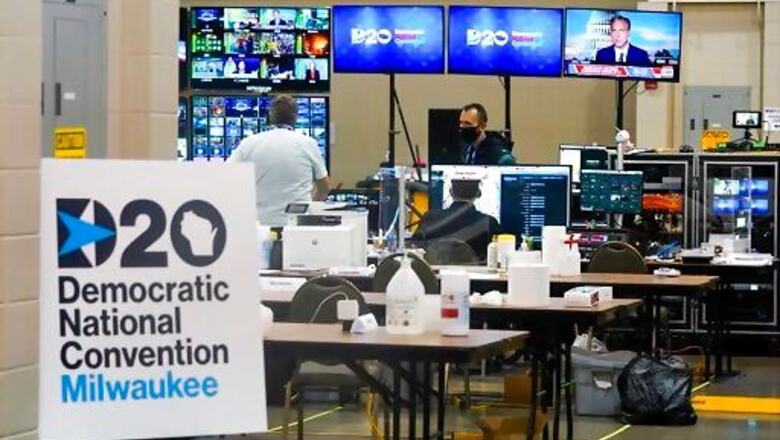
views
WASHINGTON There will be no palms to grease in Milwaukee, no checks to stroke and no influence to peddle.
Presidential nominating conventions are a major event for Washingtons influence industry and its clientele, who often spend lavishly to sponsor receptions, concerts, after-parties and the parties that come after the after-parties.
But like many disruptions during the pandemic, the Democratic convention that was supposed to crown Joe Biden this week will be digital-only, taking down with it a four-day binge of networking, catering and cocktails that brings together lobbyists, operatives, major donors and elected officials from across the country.
That means no in-person opportunities to nurture relationships that can pay dividends when policy is being shaped in Washington. And as teleconference fatigue settles in, theres little interest in trying to replicate these tactile experiences over a Zoom call.
So whats a lobbyist to do?
The short answer is nothing. Literally. I have not received one invitation. Nor is my firm, or anybody Im aware of, planning to do anything, said Steve Elmendorf, a veteran Democratic lobbyist who has attended nine conventions, stretching back to his time as a political operative and top Capitol Hill aide. Everybody I know is looking at it as a great opportunity to quarantine and watch a TV show every night for two hours.
The Democratic National Convention was marketed as a luxurious affair to lobbying firms and the corporate sponsors they represent that typically bankroll these festivities, perfect for entertaining or branding purposes with the living room of Milwaukee as their venue, according to promotional materials.
The bigger the donation, the more perks and the better placement of advertising.
For $1.5 million, for example, the donor would get VIP tickets to convention events, opportunities to attend business roundtables and policy forums, priority hotel rooms and preferred access to convention suites.
Instead, there will be a mixture of remote appearances over video feed by Biden, his vice presidential pick, Sen. Kamala Harris, and other party luminaries during a two-hour nightly broadcast that will culminate with the former vice president accepting the nomination on Thursday.
Lobbyists from both political parties say the behind-the-scenes festivities at the quadrennial gatherings are unfairly maligned.
We used to call them $200 million cocktail parties, said Barry Bennett, who worked on President Donald Trumps 2016 campaign and is a longtime Washington lobbyist. Everybody uses these events to talk to people. Sometimes you only see these people every four years, certainly in the same room together, and so all of thats lost this year.
While he allowed that some grassroots activists and political organizations may make pitches to donors and try to gain support for their cause, its not like General Motors is there trying to win over people.
More typical, fundraisers and lobbyists say, is a scramble to gain access to the best seats, private booths and exclusive events.
Yet to many good government activists, whether or not deals are struck at a convention is beside the point. In their view, an all-digital format is a vast improvement.
Conventions have turned into lobbyist soires, said Craig Holman of the Washington-based good government group Public Citizen, who himself is a registered lobbyist. They buy access to elected officials, host parties along with extravagant fundraising events, provide drinks and just having one good time with the lawmakers and public officials as a means of buying influence.
The Democratic National Committee collected at least $10.3 million in contributions specifically earmarked for the event since 2019, with much of it coming from corporate leaders, or political action committees tied to business and labor, campaign finance disclosures show. Thats far less than the at least $35 million the Republican National Committee raised for their similarly downsized convention since Trump took office.
But Democratic convention fundraising was likely impeded by the pandemic because Biden only secured a lock on the nomination once the likelihood of holding a massive in-person event in Milwaukee was in doubt.
Either way, the big money, much from corporate sponsors, wont be reported by local host committees for both political parties until well after both conventions are held.
Democrats have had an at times rocky relationship with the influence industry. Under President Barack Obama, contributions from lobbyists were restricted. That was eased in 2015, after Hillary Clinton launched her bid for the White House.
Some still dont welcome the change.
Brent Welder, a Bernie Sanders supporter who sits on the DNCs bylaws and rules committee, says he ran into stiff resistance after he recently proposed banning lobbyists from being members of the DNC. He says the committee initially tried to bar him from bringing his proposal up for a vote, though they later acquiesced and held a vote that rejected it.
Ive been to conventions before and they are absolutely chock full of lobbyists influence peddling with lavish parties, intended to influence the leaders of both political parties, said Welder, who is an attorney from Kansas City, Missouri. The fact that it cant happen this year is a good thing.
To be sure, not all convention events are cancelled, among them a series of watch parties that will be held at drive-in theaters to conform with social distancing guidelines.
But when it comes to actually enlisting donors to sponsor an event, there hasn’t been much interest.
We spent a good bit of time doing a lot of due diligence with the folks we would normally rely on to sponsor a delegation breakfast or after-hours party, said Virginia Democratic Party Chairwoman Susan Swecker, who is also a government relations consultant. And for a lot of them, if we dont have an in-person event its hard to justify. We just moved on.
Elemendorf, the Democratic lobbyist, echoed that sentiment
Nobody is interested, he said. Im not interested in getting on a Zoom with a member of Congress and Im sure those members of Congress are not interested in getting on a Zoom with me either.
Some predict this could portend a future where the conventions are much smaller and far less expensive.
“For lobbyists, I guess I understand it. But theres really not much business going on. Thats all settled by the time you get to the convention, said former Virginia Gov. Terry McAuliffe, who ran two conventions and is also a former DNC chairman. Conventions are going to be changed forever. Its going to be much more about social media and events around the country thats a template for the future.
Disclaimer: This post has been auto-published from an agency feed without any modifications to the text and has not been reviewed by an editor












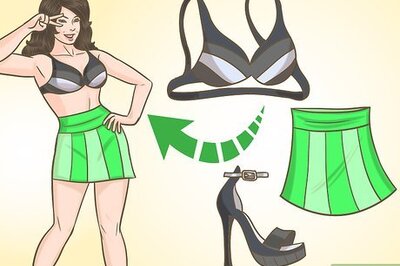
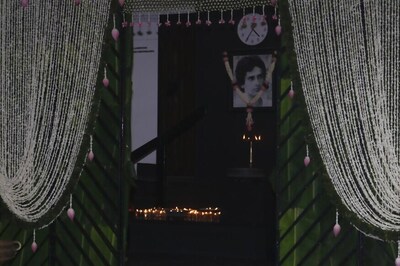
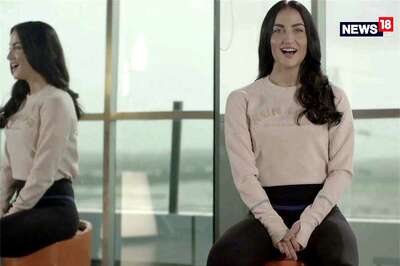
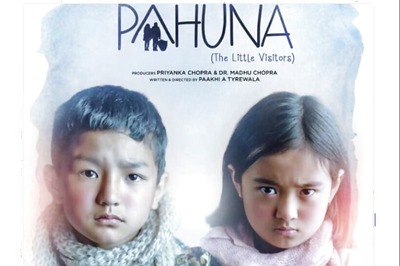
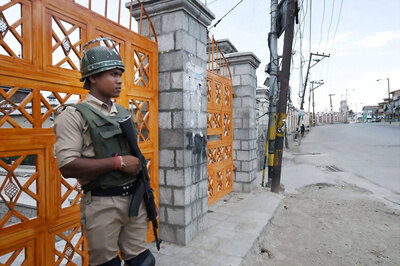

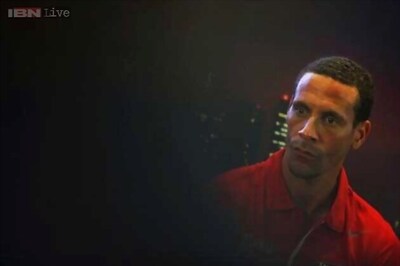
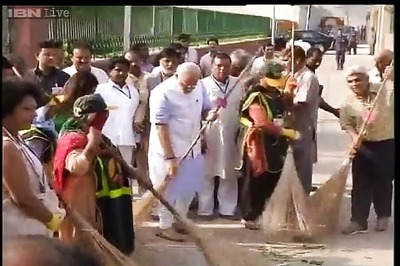
Comments
0 comment